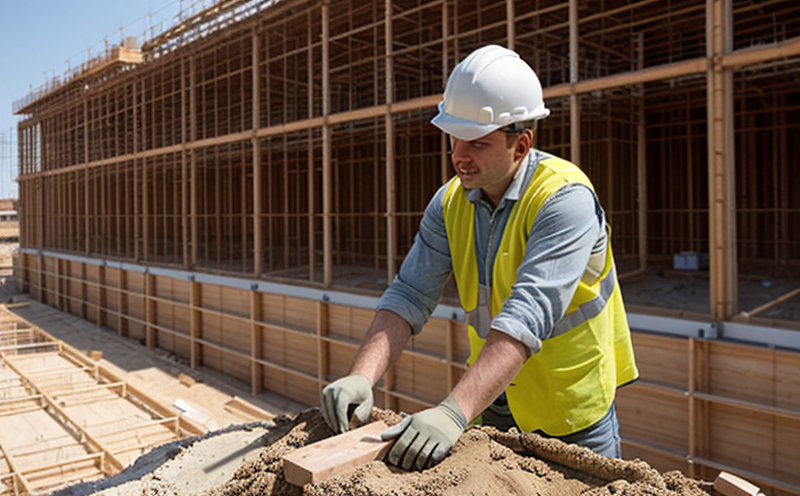Sustainability Compliance in Construction: A Comprehensive Guide
The construction industry has long been recognized as one of the most significant contributors to environmental degradation, energy consumption, and waste generation worldwide. In recent years, there has been a growing emphasis on sustainability compliance in construction, driven by increasing awareness of climate change, government regulations, and stakeholder demands.
What is Sustainability Compliance in Construction?
Sustainability compliance in construction refers to the adherence to laws, regulations, and industry standards that aim to minimize the environmental impact of building projects. This includes measures to reduce energy consumption, greenhouse gas emissions, water usage, waste generation, and pollution during the construction process. The primary goal of sustainability compliance is to ensure that buildings are constructed using materials and methods that do not harm the environment or public health.
Benefits of Sustainability Compliance in Construction
Implementing sustainability compliance measures in construction can bring numerous benefits, including:
Reduced carbon footprint and greenhouse gas emissions
Energy efficiency and cost savings through reduced energy consumption
Conservation of natural resources such as water and raw materials
Improved indoor air quality and occupant health
Enhanced brand reputation and market competitiveness
Compliance with government regulations and industry standards
Key Sustainability Compliance Measures in Construction
Some key measures to achieve sustainability compliance in construction include:
Material Selection: Choosing building materials that are locally sourced, sustainable, and recyclable.
Waste Management: Implementing waste reduction, reuse, and recycling strategies during the construction process.
Energy Efficiency: Designing buildings with energy-efficient systems and using renewable energy sources where possible.
Water Conservation: Implementing water-saving measures such as low-flow fixtures and greywater reuse systems.
Indoor Air Quality: Ensuring good indoor air quality through proper ventilation, air filtration, and material selection.
Case Studies: Successful Sustainability Compliance Projects
The Wellcome Trusts Building 90 in London: This building is one of the most sustainable commercial buildings in Europe, featuring a high-performance facade, rainwater harvesting system, and on-site renewable energy generation.
The Amazon Spheres in Seattle: This office complex features a unique living wall system that provides natural ventilation, insulation, and air filtration.
Detailed Sustainability Compliance Measures:
Material Selection for Sustainable Construction
Material selection is a critical aspect of sustainable construction. Choosing the right materials can significantly impact the environmental performance of a building. Here are some factors to consider when selecting materials:
Locally Sourced Materials: Specify materials that are locally sourced to reduce transportation-related emissions and support local economies.
Sustainable Materials: Choose materials with low embodied energy, such as recycled or reclaimed wood, bamboo, or low-carbon concrete.
Recyclable Materials: Select materials that can be easily recycled or reused at the end of their life cycle.
Low-VOC Emissions: Specify materials with low volatile organic compound (VOC) emissions to improve indoor air quality.
Waste Management Strategies for Sustainable Construction
Effective waste management is crucial to reducing construction waste. Here are some strategies to consider:
Reduce Waste Generation: Design buildings with minimal waste generation in mind, using materials that can be easily reused or recycled.
Reuse Materials: Implement a reuse program for materials such as bricks, blocks, and steel.
Recycle Materials: Ensure that recyclable materials are properly sorted and processed.
Dispose of Hazardous Waste Properly: Dispose of hazardous waste such as asbestos, lead paint, and chemicals according to regulations.
QA: Additional Details on Sustainability Compliance in Construction
Q: What is the importance of material selection in sustainable construction?
A: Material selection is a critical aspect of sustainable construction. Choosing the right materials can significantly impact the environmental performance of a building.
Q: How can I reduce waste generation during construction?
A: To reduce waste generation, design buildings with minimal waste generation in mind, using materials that can be easily reused or recycled.
Q: What are some common sustainability compliance certifications in the construction industry?
A: Some common sustainability compliance certifications include LEED (Leadership in Energy and Environmental Design), BREEAM (Building Research Establishment Environmental Assessment Method), and Green Globes.
Q: How can I ensure good indoor air quality during construction?
A: Ensure good indoor air quality by implementing proper ventilation, air filtration systems, and specifying materials with low VOC emissions.
Q: What are some government regulations related to sustainability compliance in construction?
A: Government regulations related to sustainability compliance in construction vary by country and jurisdiction. Some examples include the EUs Energy Performance of Buildings Directive and the US Green Building Councils LEED rating system.
Conclusion
Sustainability compliance is an essential aspect of modern construction projects. By implementing measures such as material selection, waste management, energy efficiency, water conservation, and indoor air quality, builders can reduce their environmental footprint while creating healthier and more sustainable buildings for occupants.

































